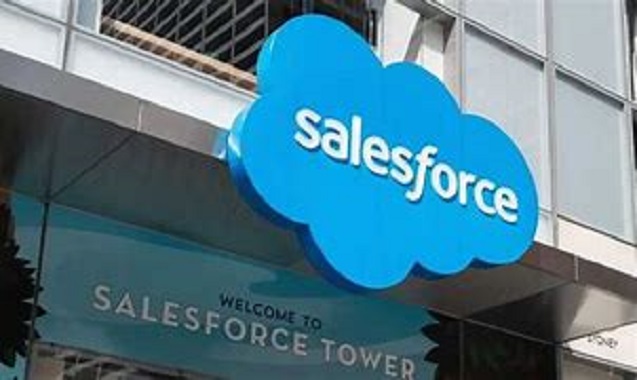Telecom
Moving Nigeria Out of Net “Importer” of Bandwidth Status

Nigeria has achieved a great deal in availability of bandwidth to enhance access to the internet through the landing of not less than five undersea cable infrastructure at her shores, more so, telecommunications operators have as well being upgrading their networks to improve internet speed and access.
Against this backdrop that internet users in the country have continued to increase, according to recent Nigerian Communications Commission report, there are about 111M internet users in Nigeria. But, in all of these the country’s internet users make more of downloads than uploads giving the country the status of internet ‘importer’ of bandwidth status.
Mohammed Rudman, managing director, Internet Exchange Point of Nigeria, explained that as a net importer of bandwidth, the country’s internet users browse more on eContent that are domiciled internationally than eContent that are localised.
He noted that this scenario is attributed to the high cost of internet access in the country, “cost increases as you move away from the content”.
In order to reserve this trend, Rudman said that Nigerians should start hosting their information locally and government should lead the way by ensuring data sovereignty such that all her information are locally hosted.
“What Nigerians seek on the internet as eContent are hosted outside of the country even the common government contents, and now that major internet content providers such as Microsoft, Google, facebook and AKamai a major internet content delivery operator have connected to IXPN and as well hosting some of their content in the country, why would government data and that of other Nigerians still be hosted outside?
“Government should promote local hosting because of its value chain as hosting of data locally will reduce capital flight. We don’t have to pay for hosting of data in dollars when it is host in-country.
“We have data centres of international standard with Tier 111 even Tier 1V certifications, what they need is right policy to reverse the trend of high emphasises on foreign hosting of data.
“Connectivity and reliability have improved over the past two years and cost will reduce as more people patronise their service,” he added.
Peter Iwegbu, managing director, Pn Consulting, and former group head, ebusiness and payment, Access bank, offering insight on hosting of server by banks, explained that banks’ servers are based on applications that the bank runs and that a typical bank in the country runs an average of 20 applications which means 20 servers.
“But today the story has changed with virtualization. This means that a bank can have one physical box with partitions inside of the box for the various applications that the bank runs. With this innovation, instead of a bank hosting 20 or more servers as the case was in the past the bank will host only one physical box reducing cost,” he added.
Ike Nnamani, managing director, Medallion Communications, a data centre operator, said that hosting of virtual machine at a tier 111 data centre depending on the specification of the machine and the operator of the data centre cost about $1,000 per month or less.
To this end, 21 commercial and one non-interest bank are spending some $264,000 to house their data at different data centres in the country annually.
Telecom
MTN Nigeria Takes Broadband Services to the Next Level with FibreX Launch

MTN Nigeria has proudly announced the rebranding of its fibre broadband service to FibreX, marking a significant stride in delivering next-generation internet solutions across the nation.

Formerly called MTN Fibre Broadband, FibreX embodies the company’s commitment to providing ultra-fast, reliable, and accessible internet services, aligning seamlessly with Nigeria’s National Broadband Plan (NBP) 2020–2025.
The NBP aims to achieve 70% broadband penetration by 2025, ensuring minimum speeds of 25 Mbps in urban areas and 10 Mbps in rural regions.
“The launch of FibreX reiterates our dedication to supporting Nigeria’s digital transformation journey,” said Egerton Idehen, Chief Broadband Officer, MTN Nigeria. “By enhancing our infrastructure and services, we aim to bridge the digital divide and foster inclusive growth.”
FibreX is set to play a pivotal role in the Federal Government’s initiative to expand the nation’s fibre-optic network by an additional 90,000 kilometers, aiming to increase fibre capacity from 35,000 km to 125,000 km.
FibreX promises ultra-fast and reliable internet connectivity, aiming to meet the diverse needs of Nigerians, from bustling urban centres to remote rural areas.
While the service itself retains its powerful FTTH (fibre to the home) infrastructure, the new name embodies a more modern, relatable, and emotionally resonant brand that is positioned to lead the conversation around what premium internet should feel like.
The new name, FibreX, was adopted to create a more customer-friendly brand. The goal is to educate and excite consumers within home-passed locations (the potential number of premises within a service area that can be connected to an FTTH network) about the benefits of the product.
As Nigeria strides towards a digitally inclusive future, initiatives like FibreX are crucial in bridging the digital divide and fostering nationwide connectivity.
For more information about FibreX and its offerings, please visit www.mtn.ng/fibrex.
Telecom
Salesforce Revolutionizes Business Intelligence with AI-Powered Tableau Next


Organisations today face a data paradox: they need to make fast, intelligent decisions but are overwhelmed by large volumes of often unreliable information. With over 75% of business leaders under pressure to prove data’s value, the demand for trusted, actionable insights has never been greater.
What is agentic analytics
Agentic analytics allows users to collaborate with AI agents to speed up the entire data-to-action process. Instead of relying on static visualizations, analysts can use AI to automate tasks like data preparation and ETL (extract, transform, load processes), freeing them to focus on deeper analysis. Business leaders can ask natural language questions and get instant, reliable answers along with recommended actions. This makes data-driven decision-making easier and more efficient, removing the need for technical expertise and manual effort typical of traditional BI tools.
- Automate repetitive data tasks like data cleaning, transformation, and visualization generation, as well as the execution of complex, multi-step analytical workflows within and across different business areas. This builds on Tableau’s strength in simplifying complex data for users.
- Proactively deliver faster, more comprehensive insights by autonomously detecting hidden correlations, outliers, and trends that might be missed by human observation. This enhances Tableau’s focus on user-driven insights by providing AI guidance.
- Enable more contextual and effective action through natural language summaries, visualisations, and data-driven recommendations, insights delivered where people work with an enterprise-class workflow engine that enables users to kick off automated actions. This extends Tableau’s ability to drive action from data, making it more seamless within the Salesforce ecosystem.
Built on the trusted Salesforce Platform and leveraging the power of Data Cloud, Tableau Next delivers enterprise-grade performance, robust security, and flexible, zero-copy data integration for seamless data connectivity. Tableau Semantics, an intelligent semantic layer, provides a unified understanding of information, ensuring data consistency and accelerating the discovery of critical insights. The built-in workflow engine in Tableau Next seamlessly translates insights directly into actionable steps, dramatically accelerating the time to value. The key differentiator is the native integration with Agentforce, Tableau Next equips humans and AI agents with pre-built analytical skills to rapidly transform data into tangible business value, marking a significant leap forward in data-driven decision-making. It includes:
- Data Pro: Your Intelligent Data Prep Assistant. Instead of users manually cleaning up and changing data using complex steps (like in traditional ETL), Data Pro will give smart suggestions on how to do it and even automatically handle some of the complicated changes, saving time and effort.
- Concierge: Instant Answers in Plain Language. Get immediate, reliable answers to data questions. Sales teams, for example, can simply ask “What are my best sales opportunities?” and receive clear insights with recommended actions.
- Inspector: Proactive Data Monitoring & Insights. Continuously tracks your data for key changes, analyzes trends, and predicts improvements. Service teams can be instantly alerted to drops in customer satisfaction, enabling immediate action.
Ensuring Data Trust and Accuracy:
- Tableau Semantics: Tableau Semantics serves as the semantic layer, providing Tableau Next and Agentforce with a unified understanding of business data. By establishing consistent definitions and context, it enables AI agents to generate accurate and relevant responses.
Boosting Efficiency:
- Marketplace: Allows users to easily share and reuse data analysis components (like data assets, connections, metrics, visualizations, dashboards), saving time and ensuring everyone is working with the same information.
“Tableau Next helps businesses achieve faster, more impactful results with their data,” said Ryan Aytay, CEO of Tableau. “We’re shifting from basic reports to a world where AI is a collaborative decision-making partner. By combining AI agents with trusted data and easy-to-use tools, we’re making data accessible to everyone and transforming the data-to-action process into an automated, proactive, and insight-driven cycle. This empowers users to improve decision-making, boost efficiency, and manage risk more effectively.”
Telecom
Temu and Shein Raise U.S. Prices Amid Trump-Era Tariffs

Chinese-founded e-commerce platforms Temu and Shein have announced upcoming price increases for U.S. customers, citing higher operating expenses due to tariffs imposed during former President Donald Trump’s administration.

These tariffs include a 145% import tax on most goods made in China and the elimination of the “de minimis provision,” which previously allowed goods valued under $800 to enter the U.S. duty-free.
The changes, effective May 2, have disrupted the business models of both companies, known for their ultra-low prices and extensive digital marketing campaigns.
Temu and Shein, which specialize in affordable products ranging from clothing to electronics, have urged customers to shop before the price adjustments take effect.
The companies aim to minimize the impact on consumers while adapting to the new trade rules.
These developments come amid concerns from U.S. lawmakers and business groups about the competitive advantage of inexpensive Chinese goods and the potential entry of counterfeit products through the now-canceled exemption.

 Telecom2 days ago
Telecom2 days agoSalesforce Revolutionizes Business Intelligence with AI-Powered Tableau Next

 Broadcasting2 days ago
Broadcasting2 days agoMultiChoice Brings Easter Home with Dedicated Pop-Up Channel

 News2 days ago
News2 days agoAirtel Smartcash Set to Power Stress-Free Easter with Seamless Cashflow

 E-Business2 days ago
E-Business2 days agoDG NITDA Tasks Africa to Lead the AI Revolution Through Strategic Leadership, Inclusive Innovation

 E-Financial2 days ago
E-Financial2 days agoHow CBEX Operators ‘Enticed’ Victims –SEC

 E-Business2 days ago
E-Business2 days agoGoogle Blocks 5.1Bn Harmful Ads in 2024, Suspends 39m Accounts

 Telecom2 days ago
Telecom2 days agoTemu and Shein Raise U.S. Prices Amid Trump-Era Tariffs

 E-Financial2 days ago
E-Financial2 days agoCBN Warns Banks, Fintechs on Compliance with Sanctions


























